Crescent Regional Hospital, an acute care hospital about a half hour south of Dallas, and Holoconnects, a technology provider of 3D holographic solutions including Holobox and Holobox Mini hologram displays, announced a partnership that makes Crescent Regional Hospital the first in the U.S. to utilize life-size, highly advanced holographic technology for patient care. The integration of Holoconnects’ Holobox technology will enable doctors to teleport as a life-size 3D hologram and connect with patients in real-time, transforming communication between doctor and patient and creating an immersive, engaging, interactive experience.
Crescent Regional Hospital has installed its first full-size 86-inch Holoconnects’ Holobox hologram display and video studio. The hospital plans to install 24-inch Holobox Mini displays at several locations throughout the hospital and associated clinics. Crescent Regional is on a mission to become the “hospital of the future” — a facility where technology and human ingenuity combine to break down historical barriers to healthcare access, including underserved communities. Crescent Regional Hospital patients can now schedule a non-touch visit with their doctor or any range of medical specialists from the Dallas area or anywhere in the world.
Immediate use cases of Holoconnects’ life-size hologram technology for Crescent Regional Hospital include:
- Virtual Consultations Pre- and Post-Surgery: Patients can have personal interactions and consultations with Crescent’s healthcare providers via teleportation to a remote location for any of Crescent’s specialties, including cardiology, emergency care, gastroenterology, neurology, orthopedic care, pulmonology, general surgery, spine health, wound care and more.
- Telemedicine Rounds: Doctors can conduct “virtual” rounds with patients and hospitalists to discuss treatment plans and progress and economize on the time it takes to travel by car to patient locations.
- Physician/Specialist Consultations Pre- and Post-Surgery: Patients can access Crescent Regional Hospital specialists and their expertise remotely, opening up more availability for the physician and eliminating possible weeks or months of wait time for the patient to see them. Due to added schedule flexibility, doctors save up to 20 hours a week, which allows them to see more patients and address urgent cases.
- Collaborative Care Planning: Multidisciplinary teams can collaborate on patient care plans and treatment strategies, promoting seamless communication and coordination.
- Patient Education: Holograms can help educate patients about their medical conditions, treatment options, pre-surgery instruction, and post-discharge care instruction. Patients are comfortable interacting with holograms as it feels like seeing a doctor in person.
Holoconnects trained Crescent Regional Hospital clinicians, staff, and the hospital’s technical operations team on the technology. Crescent Regional Hospital plans to expand its use of real-time hologram technology to assist with other hospital needs, such as remote diagnostics, remote surgery assistance, language interpretation, medical training and education and medical device demonstrations.
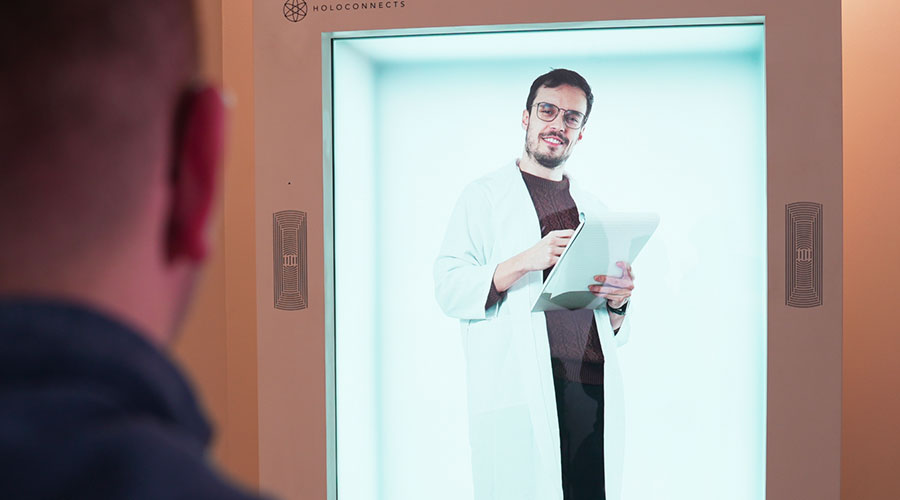
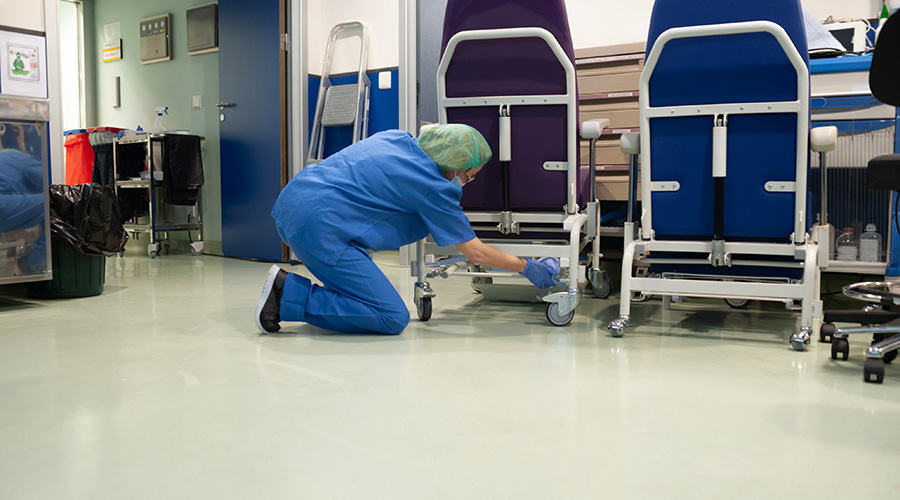 Biofilm 'Life Raft' Changes C. Auris Risk
Biofilm 'Life Raft' Changes C. Auris Risk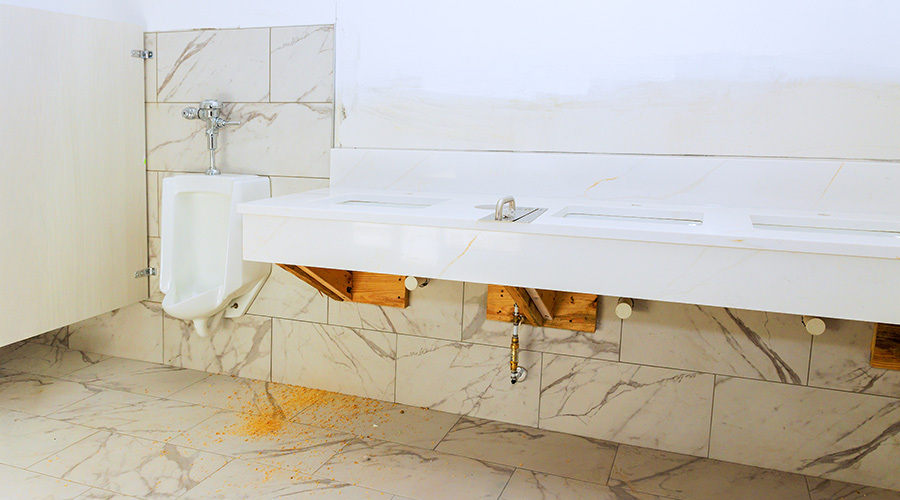 How Healthcare Restrooms Are Rethinking Water Efficiency
How Healthcare Restrooms Are Rethinking Water Efficiency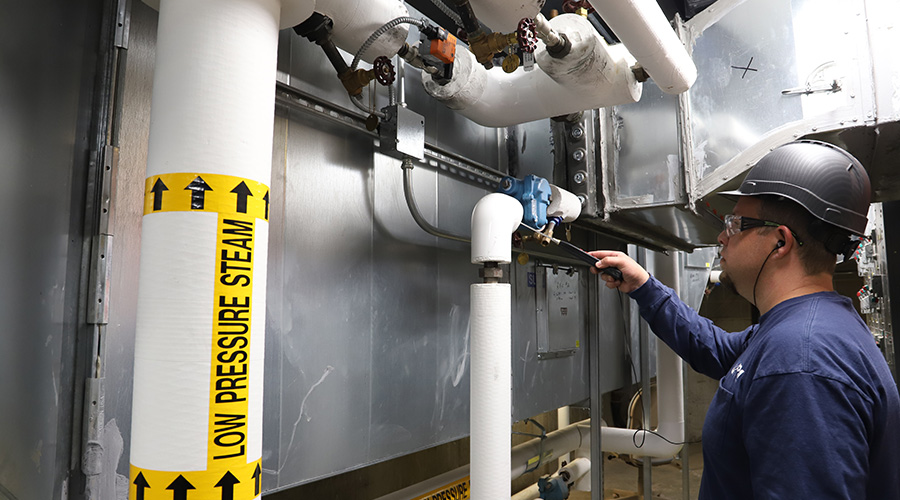 Northwell Health Finds Energy Savings in Steam Systems
Northwell Health Finds Energy Savings in Steam Systems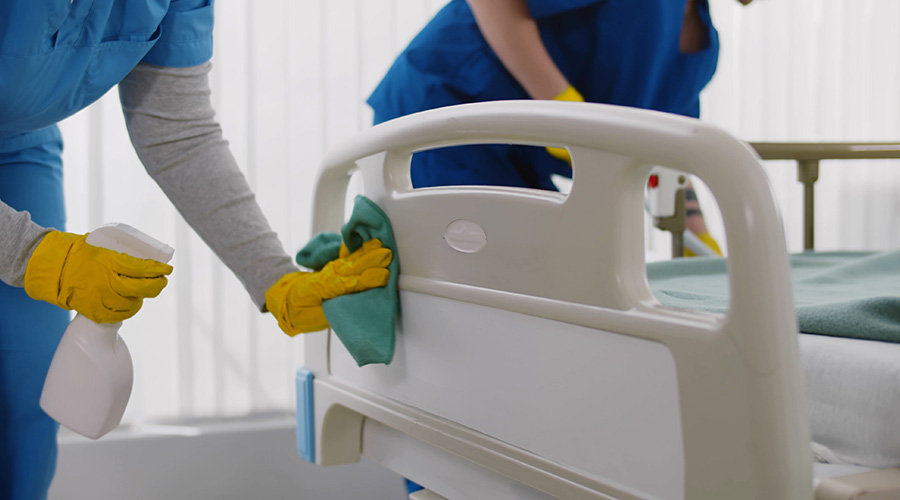 The Difference Between Cleaning, Sanitizing and Disinfecting
The Difference Between Cleaning, Sanitizing and Disinfecting Jupiter Medical Center Falls Victim to Third-Party Data Breach
Jupiter Medical Center Falls Victim to Third-Party Data Breach